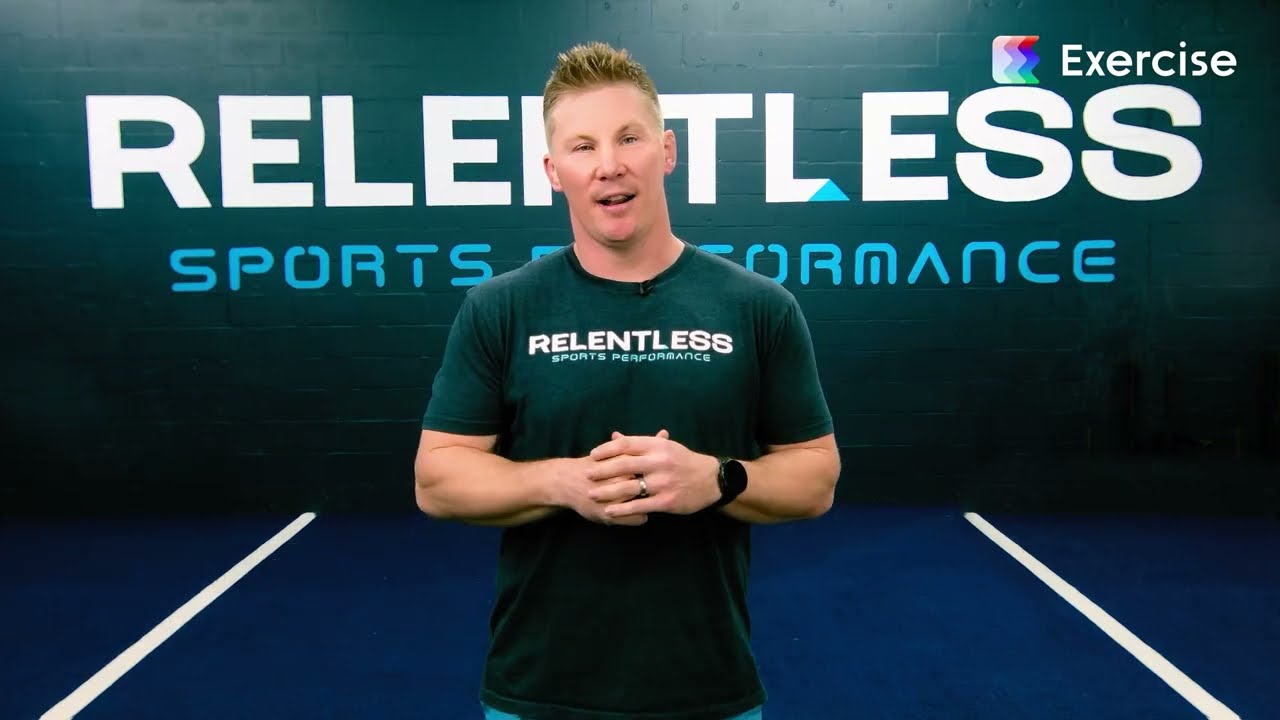NCSF Personal Trainer Certification Review (2025)
Read this NCSF Personal Trainer Certification Review to decide if the NCSF CPT Certification is worth it and what the best personal training certification is for you.

In the fitness industry, personal trainer certifications have become increasingly important for career advancement and professional credibility. One notable PT certification is the NCSF Personal Trainer Certification offered by the National Council on Strength and Fitness (NCSF). This NCSF CPT review aims to provide a comprehensive review of the NCSF Personal Trainer Certification, including an overview of the organization, the benefits of obtaining the NCSF certification, the requirements, the certification exam, the review process, and more.
If you’re wondering what is NCSF, is NCSF a good certification, the NCSF certification cost, and more then discover everything you need to know about the NCSF Personal Trainer Certification in this comprehensive review. And then once you’ve read through NCSF reviews, then decide if you want to become an NCSF certified personal trainer, whether you simply want to learn how to become a personal trainer at all, or learn how to become a fitness influencer, or learn how to open a gym, or learn how to start a fitness business, or anything in between, use the Exercise.com platform to accomplish your fitness business goals.

You can start an online personal training business, make a fitness app, learn how to make money selling workout plans online, put in-person personal training marketing ideas into action, use personal training income ideas to find personal trainer career options that will put you on track for the highest paying fitness jobs, and many other ways to make money from fitness doing what you love.
With the Exercise.com platform you have the best online fitness coaching software and the best software for fitness influencers all in one! (Not to mention the best gym software and the best personal training software).
Create workout plans.
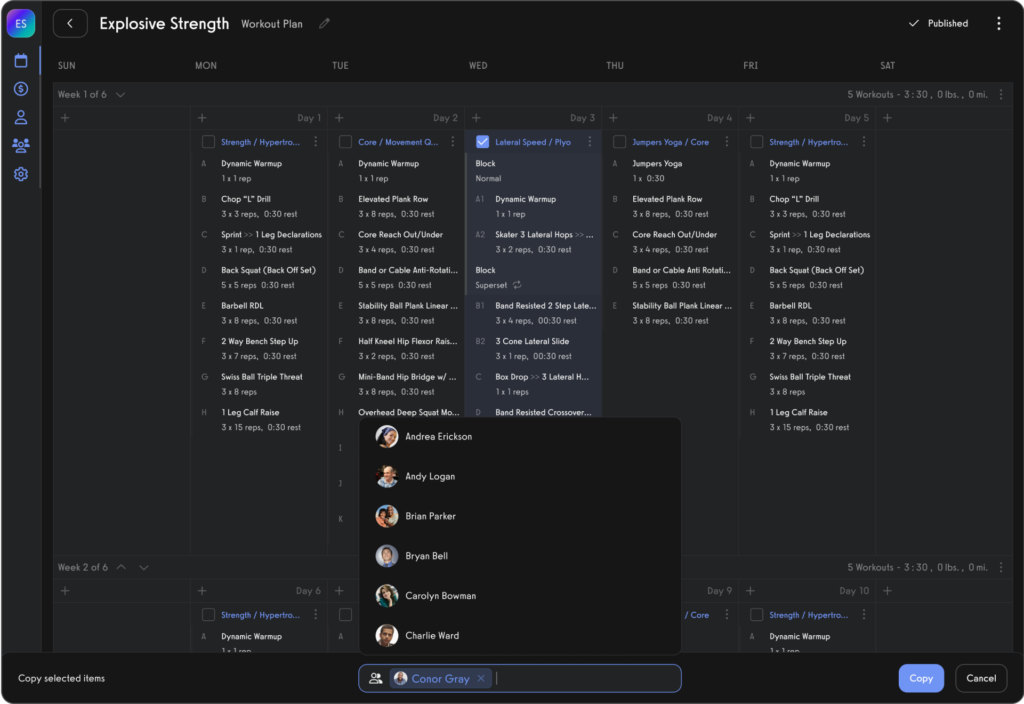
Manage clients.
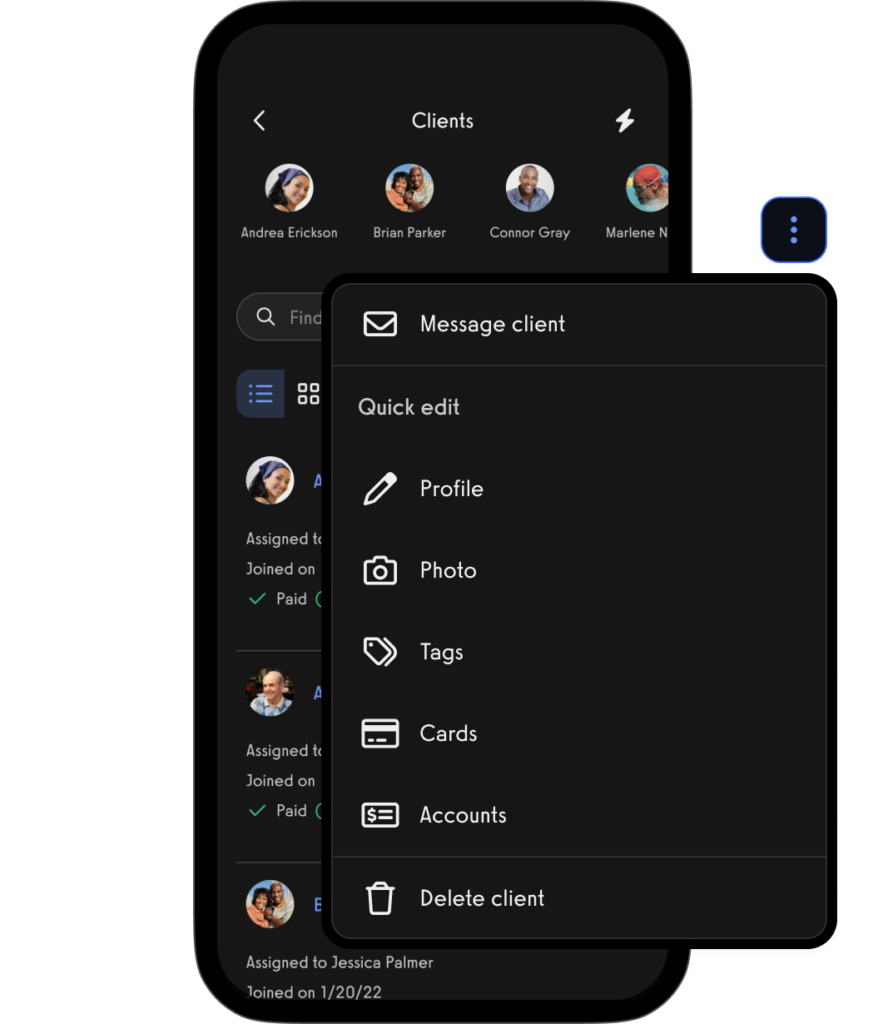
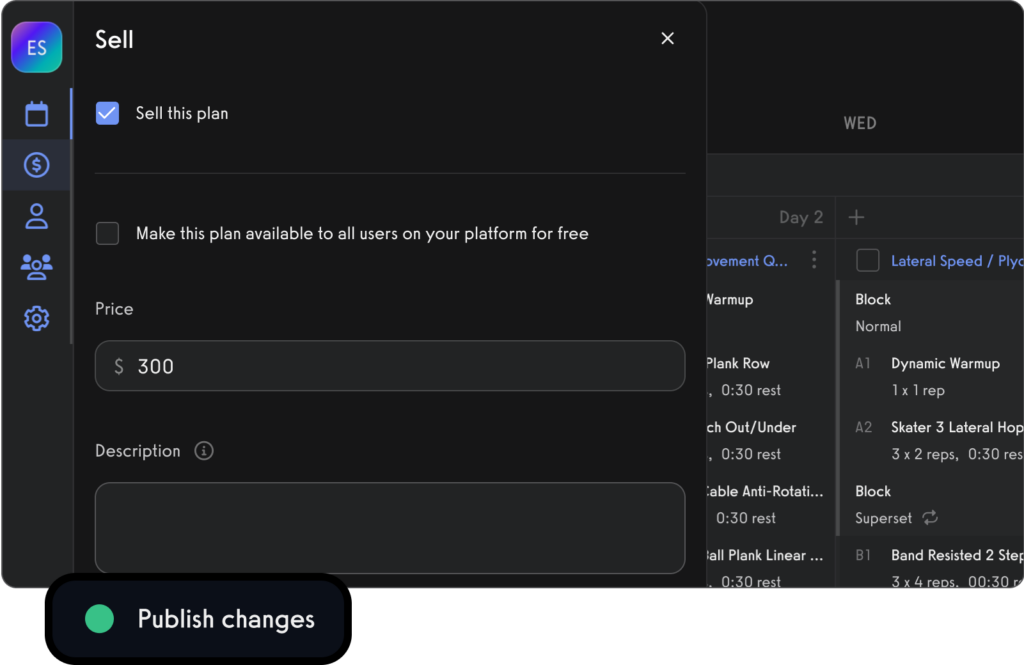
Run online fitness challenges.
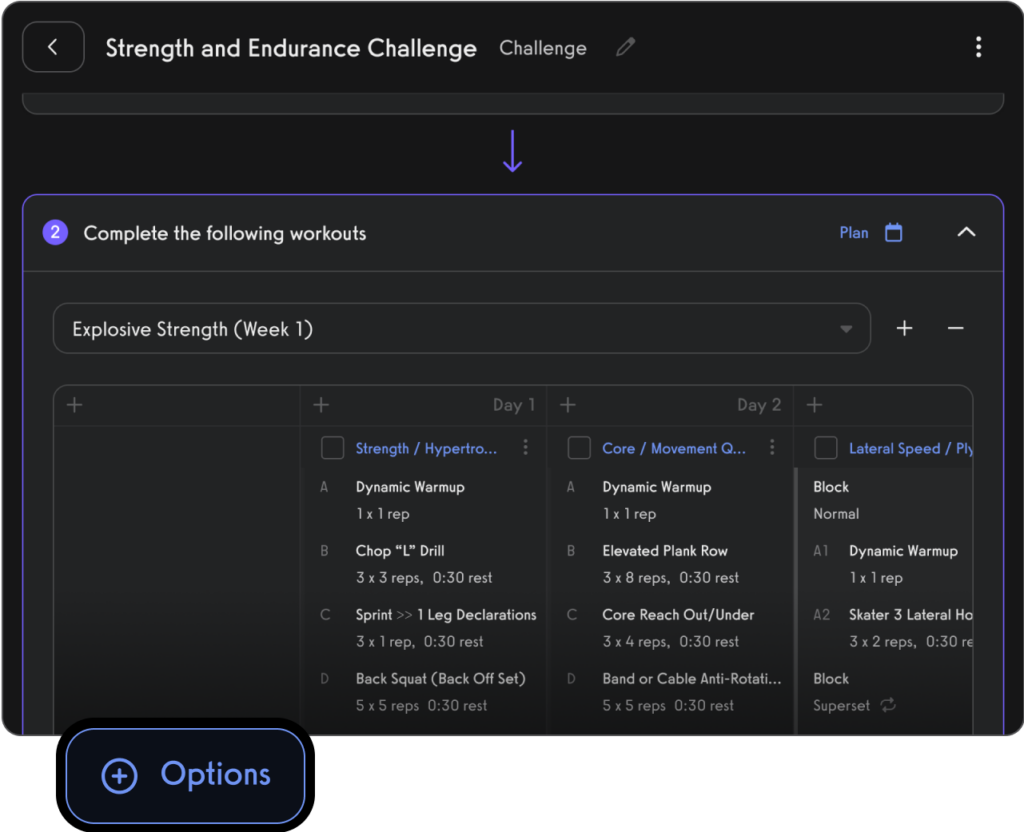
Create and sell fitness memberships, products, and digital offers.

Manage, message, and market to your online personal training clients and leads.
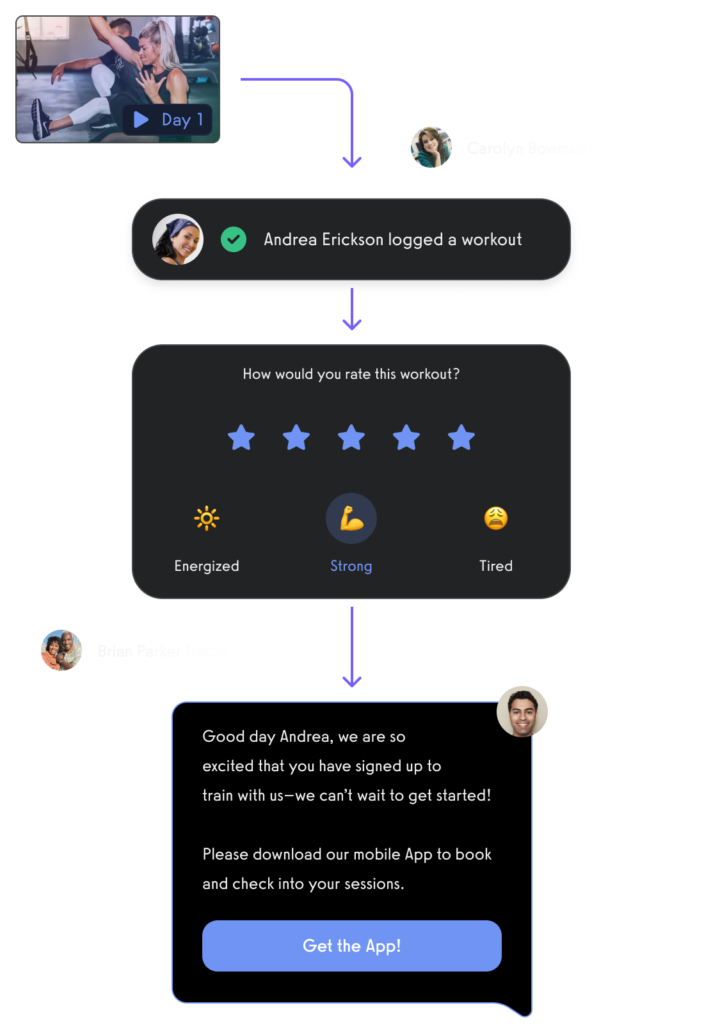
All from your very own custom branded fitness apps.
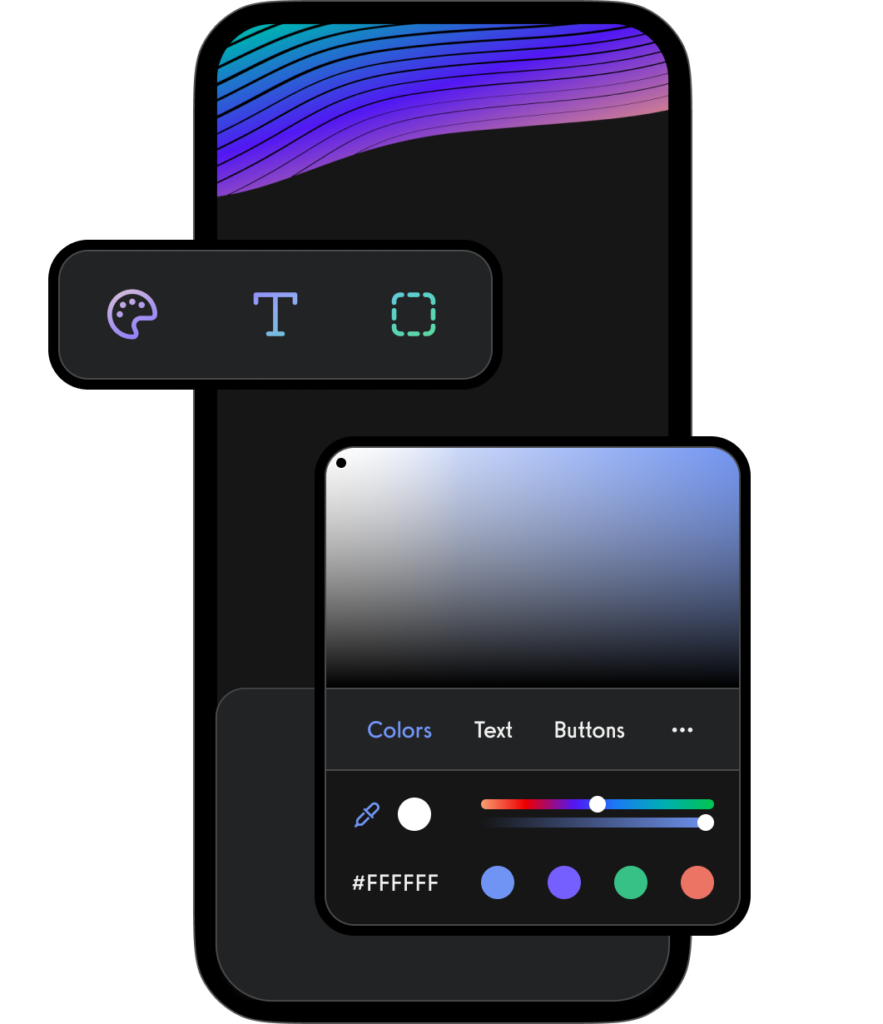
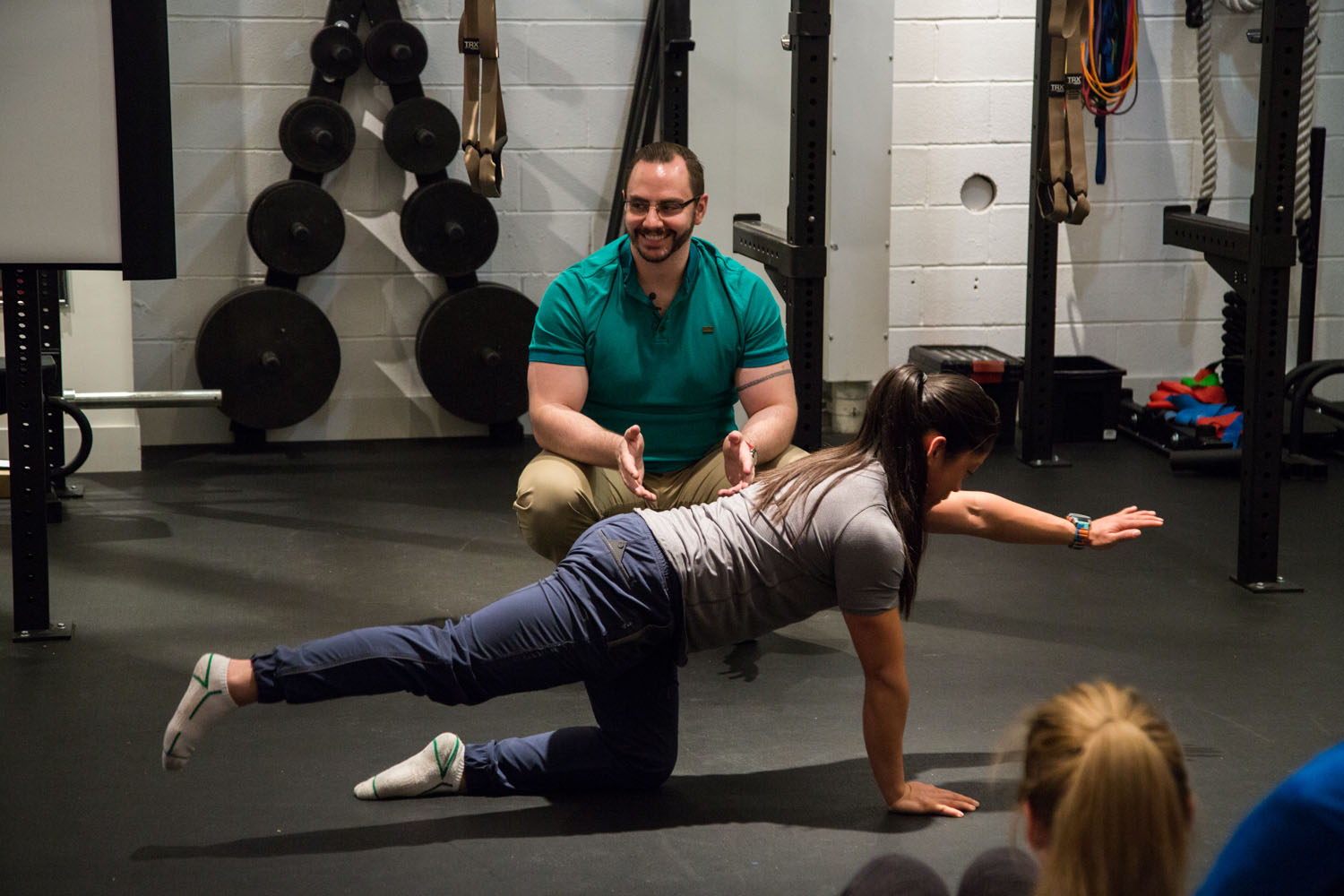
NCSF Personal Trainer Certification
The NCSF Personal Trainer Certification is a globally recognized credential that validates an individual’s knowledge and competence in the field of personal training. With over 25 years of experience, the NCSF has established itself as a leader in the fitness industry, setting high standards for professionalism and ensuring that certified trainers are well-equipped to assist clients in achieving their fitness goals.
The NCSF (National Council on Strength and Fitness) Personal Trainer Certification is renowned for its scientific approach to fitness training and emphasis on practical application in real-world settings.
The NCSF Certification is designed to equip aspiring personal trainers with the latest in exercise science, nutrition, and fitness program design, ensuring they are well-prepared to meet their clients’ diverse needs.
NCSF Personal Trainer General Information
This certification caters to both newcomers to the fitness industry and seasoned professionals looking to bolster their credentials with a robust certification grounded in scientific principles.
NCSF Credibility and Reputation
NCSF holds a prestigious position in the fitness certification landscape, celebrated for its rigorous academic standards and its commitment to the professional development of personal trainers.
Given its comprehensive curriculum, strong industry recognition, and focus on practical skills, the NCSF certification offers significant value to those serious about a career in personal training.
NCSF stands out with its strong emphasis on evidence-based training methods and its extensive network of testing centers, making it accessible to candidates nationwide.
Partnering with the best personal training software allows NCSF-certified trainers to deliver tailored workout programs, track client progress, and manage their business efficiently, all within a single platform.
Who Is the NCSF Certification Meant For?
The NCSF certification is ideal for individuals passionate about applying scientific principles to fitness training and who value a certification that blends academic rigor with practical skills.
NCSF Cost
NCSF offers multiple certification packages, from essential study materials to comprehensive bundles that include additional resources and workshop opportunities. The cost of the NCSF Personal Trainer Certification varies depending on the study package and materials chosen. Prices typically range from approximately $300 to $700, including study guides, practice exams, and access to the certification exam. It’s advisable to check the NCSF’s official website for the most current pricing and available packages.
Self-Study
This option provides the core resources needed for self-guided study, making it a flexible choice for those with prior fitness knowledge or limited time.
Standard Package
The standard package offers a balanced mix of study materials, including textbooks, practice exams, and online support, for a more structured study experience.
NCSF Certification Content
NCSF’s curriculum covers a broad spectrum of topics, from biomechanics and physiology to client assessment and program design, ensuring a thorough grounding in personal training.
Section 1 – Exercise Science Fundamentals
- Detailed exploration of human anatomy, physiology, and the biomechanics of movement.
Section 2 – Nutrition and Wellness
- In-depth discussion on nutrition, wellness, and lifestyle factors that impact fitness and health.
NCSF Exam Prep and Study Materials
NCSF offers an array of study aids, including online courses, interactive study tools, and live workshops, to prepare candidates thoroughly for the certification exam.
NCSF Certification Requirements
Candidates must complete the educational coursework, pass the certification exam, and meet practical experience requirements to earn their NCSF certification.
NCSF Personal Trainer Salary
NCSF-certified personal trainers can expect competitive salaries, with potential increases as they gain experience and expand their clientele.
Taking the Final NCSF Exam
The NCSF certification exam challenges candidates to apply their knowledge to practical scenarios, ensuring they are ready to work with clients upon certification.
NCSF Continuing Education and Recertification
NCSF promotes lifelong learning, offering a wide range of continuing education opportunities to help trainers stay at the forefront of the fitness industry.
Other NCSF Offerings
Beyond its personal trainer certification, NCSF provides specialized credentials in strength coaching, sport nutrition, and more, allowing trainers to diversify their expertise.
NCSF Personal Trainer Overall Rating
Pros
- Strong emphasis on evidence-based training principles and practices
- Wide range of study materials and preparation options to suit different learning styles
- High industry recognition and credibility
Cons
- The comprehensive nature of the curriculum may be challenging for those new to exercise science
- The cost of certification and continuing education may be a consideration for some
The NCSF Personal Trainer Certification is an excellent choice for those who value a science-based approach to fitness training and wish to obtain a certification that is both respected and widely recognized within the fitness industry. By leveraging the capabilities of the best personal training software and the best gym management software, NCSF-certified professionals can enhance their client interactions, streamline their business operations, and deliver personalized, effective training programs, ensuring they stand out in a competitive market.
Overview of the NCSF organization
As a non-profit organization, the NCSF is dedicated to promoting the highest level of professionalism and ethical standards in the fitness industry. The organization provides educational resources, training programs, and certifications not only for personal trainers but also for strength coaches, exercise specialists, and sports nutritionists.
The NCSF was founded in 1986 by a group of fitness professionals who recognized the need for a standardized certification program in the field of personal training. Since its inception, the organization has grown exponentially, expanding its reach globally and continuously evolving to meet the changing needs of the fitness industry.
One of the key aspects of the NCSF’s mission is to ensure that personal trainers have access to the most up-to-date and evidence-based information in the field of exercise science. To achieve this, the organization collaborates with leading experts and researchers to develop comprehensive educational materials and training programs.
Additionally, the NCSF places a strong emphasis on the importance of ethics and professionalism in the fitness industry. The organization provides guidelines and standards for ethical conduct, ensuring that certified trainers adhere to a strict code of ethics when working with clients.
Importance of personal trainer certification
Obtaining a personal trainer certification is crucial for several reasons. Firstly, it demonstrates to clients and employers that the trainer possesses the necessary knowledge and skills to deliver safe and effective exercise programs. Clients can have confidence in their trainer’s ability to guide them towards their fitness goals, knowing that they have undergone rigorous training and assessment.
Moreover, certification enhances the trainer’s credibility and marketability. In an industry saturated with fitness professionals, having a recognized certification sets a trainer apart from the competition. It provides potential clients with assurance that the trainer has met certain standards of competence and professionalism.
Furthermore, being a certified personal trainer provides access to ongoing professional development opportunities and networking within the fitness industry. The NCSF offers a range of continuing education courses and workshops, allowing trainers to expand their knowledge and stay updated with the latest advancements in exercise science.
Networking opportunities provided by the NCSF enable trainers to connect with other professionals in the field, fostering collaboration and the exchange of ideas. This network can be invaluable for career growth and staying connected to industry trends and best practices.
In conclusion, the NCSF Personal Trainer Certification is a highly regarded credential that validates the knowledge and competence of personal trainers. With its commitment to professionalism, ethics, and ongoing education, the NCSF plays a pivotal role in shaping the fitness industry and ensuring that trainers are well-prepared to meet the needs of their clients.
Benefits of the NCSF Personal Trainer Certification
The NCSF Personal Trainer Certification offers several advantages for fitness professionals seeking career growth and success. These benefits include:
Enhanced credibility and marketability
With the NCSF Personal Trainer Certification, trainers can differentiate themselves from non-certified individuals in the saturated fitness market. The certification serves as an objective measure of their knowledge, skills, and commitment to the highest industry standards, building trust and confidence among potential clients and employers.
For fitness professionals, credibility is essential in attracting and retaining clients. The NCSF Personal Trainer Certification provides the necessary validation of their expertise, giving them an edge over uncertified trainers. By displaying the NCSF logo on their marketing materials and website, certified trainers can showcase their commitment to professionalism and quality.
Furthermore, the NCSF certification enhances marketability by demonstrating a trainer’s dedication to ongoing education and staying updated with the latest industry trends. This commitment to continuous learning not only benefits the trainer but also reassures clients that they are receiving the most up-to-date and effective training methods.
Expanded job opportunities
NCSF certification opens doors to a range of job opportunities, including employment in fitness centers, health clubs, corporate wellness programs, and private training studios. The demand for certified trainers continues to grow as more individuals recognize the importance of working with professionals who have the necessary knowledge and skills to guide them towards their fitness goals.
Moreover, certified NCSF trainers may have the opportunity to work with special populations, such as athletes, older adults, and individuals with specific medical conditions. These specialized areas require trainers with a deep understanding of the unique needs and considerations of these populations. By obtaining the NCSF certification, trainers can position themselves as experts in these fields, increasing their chances of securing specialized employment opportunities.
Additionally, the NCSF certification provides trainers with the flexibility to work in various settings, whether it’s one-on-one personal training, group fitness classes, or online coaching. This versatility allows trainers to explore different career paths and find the niche that aligns with their interests and skills.
Increased earning potential
Trainers with the NCSF Personal Trainer Certification often find themselves in a better position to negotiate higher pay rates. The certification signifies that they possess the necessary expertise to provide quality training, prompting clients to be willing to invest more in their services. This can significantly impact a trainer’s earning potential and financial stability.
Furthermore, the NCSF certification equips trainers with the knowledge and skills to offer specialized services, such as sports performance training or post-rehabilitation exercise programs. These specialized services often command higher rates due to the additional expertise required. By expanding their skill set through the NCSF certification, trainers can tap into these niche markets and attract clients willing to pay a premium for specialized training.
In addition to higher pay rates, the NCSF certification can also lead to increased opportunities for additional income streams. Trainers can leverage their certification to offer workshops, seminars, and online courses, further expanding their earning potential beyond traditional personal training sessions.
Overall, the NCSF Personal Trainer Certification not only enhances a trainer’s credibility and marketability but also opens up a world of opportunities for career growth and increased earning potential. By investing in their professional development through this certification, fitness professionals can take their careers to new heights and make a lasting impact on their clients’ lives.
NCSF Personal Trainer Certification Requirements
Prior to pursuing the NCSF Personal Trainer Certification, aspiring trainers must meet specific requirements set by the organization. These requirements include:
Educational prerequisites
The NCSF requires applicants to possess a high school diploma or equivalent. Although a bachelor’s degree in exercise science or a related field is not mandatory, it is highly recommended to possess a solid academic foundation in exercise physiology, anatomy, kinesiology, and nutrition.
Having a solid educational background in these subjects allows personal trainers to better understand the science behind exercise and nutrition, enabling them to provide informed and effective guidance to their clients. Understanding exercise physiology helps trainers design appropriate workout plans tailored to individual needs, while knowledge of anatomy and kinesiology aids in preventing injuries and ensuring proper form during exercises. Additionally, understanding nutrition allows trainers to provide guidance on healthy eating habits that complement their clients’ fitness goals.
CPR and AED certification
Applicants must also hold a valid certification in cardiopulmonary resuscitation (CPR) and automated external defibrillator (AED) usage. This requirement ensures that trainers are prepared to respond to emergencies effectively and provide a safe training environment for their clients.
CPR and AED certification is crucial for personal trainers as it equips them with the necessary skills to handle cardiac emergencies that may occur during training sessions. By being trained in CPR and AED usage, trainers can quickly respond to situations where a client may experience a sudden cardiac arrest, potentially saving lives. This certification demonstrates the commitment of personal trainers to the safety and well-being of their clients.
Practical experience
While no specific practical experience is mandated to sit for the NCSF certification exam, applicants with prior experience in the health and fitness industry may have a competitive advantage. Practical experience demonstrates a trainer’s ability to apply theoretical knowledge in real-world settings and effectively work with diverse clientele.
Practical experience allows personal trainers to gain valuable insights into the challenges and nuances of working with different individuals, each with their own unique needs and goals. Trainers who have worked with a variety of clients are better equipped to tailor their training programs to suit specific requirements, whether it be weight loss, muscle gain, or rehabilitation. Additionally, practical experience helps trainers develop important skills such as client communication, motivation, and program adaptation, which are essential for building successful and long-lasting client-trainer relationships.
NCSF Personal Trainer Certification Exam
The NCSF certification exam is designed to assess an individual’s knowledge and application of essential concepts related to personal training. Understanding the exam format and structure, utilizing appropriate study resources, and adequately preparing are crucial for success.
When it comes to the NCSF Personal Trainer Certification exam, candidates must be well-prepared and knowledgeable in various topics. The exam format consists of multiple-choice questions that cover a wide range of subjects, including anatomy, exercise physiology, program design, nutrition, injury prevention, and client communication. These topics are essential for a personal trainer to understand and apply in their practice.
Administered through a computer-based platform, the exam typically takes around two hours to complete. During this time, candidates must demonstrate their understanding of the concepts and their ability to apply them in real-life scenarios. It is important to manage time effectively and answer each question thoughtfully and accurately.
Study resources and preparation tips
To help candidates prepare for the certification exam, the NCSF provides a variety of study resources. These resources include textbooks, online materials, and practice quizzes. It is crucial for candidates to take advantage of these resources and allocate sufficient time for studying.
When studying, it is important to focus on understanding key concepts rather than memorizing information. This will allow candidates to apply their knowledge effectively during the exam and in their future career as a personal trainer. Additionally, practicing with sample questions can help familiarize candidates with the exam format and improve their test-taking skills.
Furthermore, candidates should create a study schedule and stick to it. Breaking down the material into manageable chunks and dedicating specific time slots for studying can help ensure thorough preparation. It is also beneficial to engage in group study sessions or seek guidance from experienced personal trainers to gain different perspectives and insights.
Passing score and certification validity
In order to pass the NCSF Personal Trainer Certification exam, candidates must achieve a minimum score set by the organization. This passing score indicates that the candidate has demonstrated a sufficient understanding of the essential concepts related to personal training.
Upon successful completion of the exam, candidates are awarded the NCSF certification. This certification is valid for two years, during which certified trainers must fulfill renewal requirements to maintain an active certification status. These renewal requirements often include continuing education courses and staying up to date with the latest advancements and research in the field of personal training.
Obtaining the NCSF Personal Trainer Certification is a significant achievement that demonstrates a personal trainer’s dedication to their profession and their commitment to providing safe and effective training to clients. It is a valuable credential that can open doors to various career opportunities and enhance professional credibility.
NCSF Personal Trainer Certification Review Process
After submitting the application for the NCSF Personal Trainer Certification, candidates can expect their materials to undergo a thorough review process by the organization.
Application submission
Applicants are required to submit the necessary documentation, including educational transcripts, CPR and AED certification proof, and other supporting materials. The NCSF staff reviews the applications to ensure that all requirements are met before granting permission to take the certification exam.
Review timeline and process
The review process typically takes a few weeks, during which the NCSF evaluates and verifies the information provided by the candidate. If additional information or clarification is required, candidates may be contacted for further documentation or explanation.
Appeals and re-evaluation options
In the event that a candidate receives an unfavorable decision from the review process, such as a denial of certification, the NCSF offers an appeals process. Candidates can present additional evidence or documentation to support their case or request a re-evaluation of their application.
NCSF Personal Trainer Certification Renewal
Certified trainers must adhere to specific renewal requirements to maintain their NCSF Personal Trainer Certification and ensure their knowledge and skills remain up to date.
Continuing education requirements
The NCSF requires certified trainers to engage in ongoing professional development by completing continuing education credits. These credits can be earned through various activities, such as attending workshops, conferences, seminars, or completing online courses approved by the NCSF.
Renewal process and fees
Renewing the NCSF Personal Trainer Certification involves submitting a renewal application along with proof of completing the necessary continuing education credits. Trainers must remain in good standing with the NCSF and pay the required renewal fees to keep their certification active.
Benefits of maintaining an active certification
Maintaining an active NCSF Personal Trainer Certification offers a range of advantages, including staying up to date with the latest industry trends and research, accessing exclusive resources and networking opportunities through the NCSF, and enhancing professional credibility.
The NCSF Personal Trainer Certification is a reputable and valuable credential for fitness professionals seeking career advancement and recognition in the industry. This review has covered the organization overview, benefits, requirements, certification exam, review process, renewal procedures, success stories, and frequently asked questions, providing a comprehensive understanding for aspiring trainers considering this certification. By obtaining the NCSF Personal Trainer Certification, fitness professionals can enhance their professional credibility, access a wide range of job opportunities, increase their earning potential, and positively impact the lives of their clients.
Summary of the NCSF Personal Trainer Certification review
This review has provided a comprehensive overview of the NCSF Personal Trainer Certification, highlighting its significance, benefits, requirements, exam process, review procedures, renewal requirements, success stories, and frequently asked questions. The NCSF certification serves as a valuable credential for fitness professionals, offering career growth opportunities, industry recognition, and enhancing their ability to make a positive impact on their clients’ lives.
Final thoughts and recommendations
For fitness professionals aspiring to excel in the field of personal training, obtaining the NCSF Personal Trainer Certification is a worthwhile investment. The certification not only equips trainers with the necessary knowledge and skills but also grants access to a supportive professional network and ongoing educational resources. By making the commitment to pursue this certification, fitness professionals can take their careers to new heights and positively influence the lives of their clients.
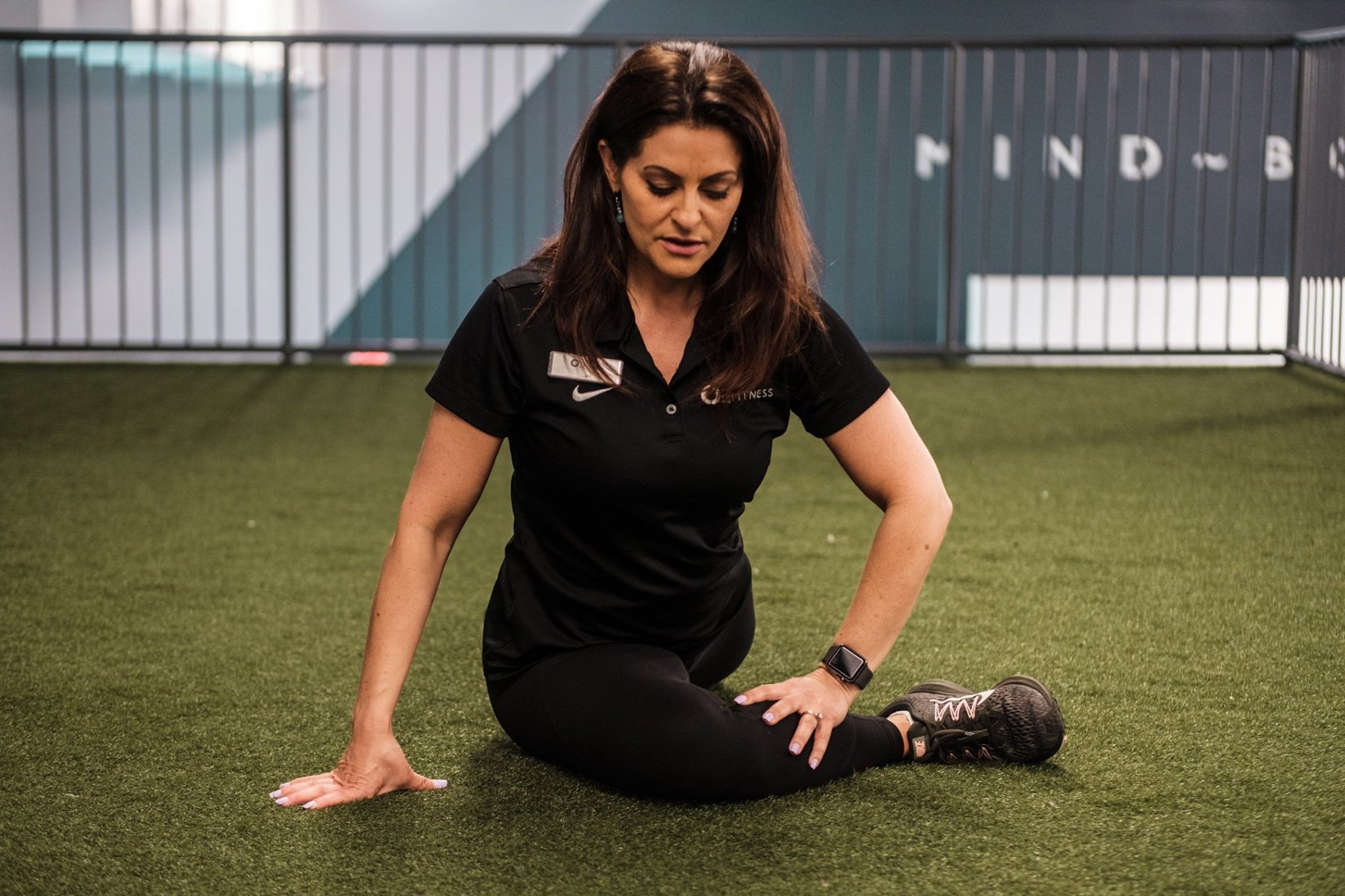
Is the NCSF Personal Trainer Certification worth it?
The NCSF (National Council on Strength & Fitness) Personal Trainer Certification is considered valuable for those entering or advancing in the fitness training field. If you are wondering, “Is the NCSF certification good?” then know that it is well-regarded for its strong emphasis on scientific principles and evidence-based training methodologies. The certification is accredited by the NCCA (National Commission for Certifying Agencies), making it a reputable credential that can enhance your credibility as a personal trainer and open opportunities in various fitness settings.
How difficult is the NCSF Personal Trainer Certification exam?
The NCSF Personal Trainer Certification exam is known to be challenging but achievable, covering a broad range of topics including exercise science, nutrition, fitness assessment, program design, and client interaction. Adequate preparation through NCSF’s study materials and a solid foundation in the fundamentals of exercise science are key to successfully passing the exam.
How credible is NCSF’s Personal Trainer Certification?
The NCSF’s Personal Trainer Certification is highly credible in the fitness industry. The NCSF is recognized for its commitment to high educational standards and an evidence-based approach to fitness training. The certification’s NCCA accreditation further solidifies its credibility, ensuring it meets the highest standards for the certification of health and fitness professionals. Comparing NCSF vs NASM or NCSF vs ACE or NCSM vs ISSA places the NCSF personal training certification near the top (but not the very top) of the list.
How many people pass the NCSF Personal Trainer Certification exam on the first try?
Specific pass rate statistics for the NCSF Personal Trainer Certification exam on the first try are not publicly disclosed by the NCSF. However, the organization provides comprehensive educational resources designed to prepare candidates thoroughly for the exam, which can significantly improve the likelihood of passing on the first attempt.
What is the pass rate of the NCSF Personal Trainer Certification?
The NCSF does not publish specific pass rates for its Personal Trainer Certification exam. The exam is comprehensive and designed to assess a candidate’s knowledge and ability to apply key concepts in personal training, underscoring the importance of thorough preparation.
How does NCSF’s Personal Trainer Certification compare to other certifications?
NCSF’s Personal Trainer Certification is notable for its strong foundation in exercise science and its application to practical training scenarios. Compared to other certifications like NASM, ACE, or ACSM, the NCSF certification is particularly recognized for its blend of scientific rigor and practical application, making it a competitive choice for those who value a balance of theoretical knowledge and hands-on training skills.
Is the NCSF Personal Trainer Certification test open book?
The NCSF Personal Trainer Certification exam is not open book. It is a proctored test that assesses the candidate’s knowledge and understanding of personal training principles without the aid of textbooks, notes, or other external resources.
How many times can you fail the NCSF Personal Trainer Certification exam?
The NCSF allows candidates to retake the Personal Trainer Certification exam if they fail, but a retake fee applies. The specific policy regarding the number of retakes and any waiting periods between attempts should be confirmed directly with the NCSF, as policies may be subject to change.
What can I do with an NCSF Personal Trainer Certification?
With an NCSF Personal Trainer Certification, you can work as a personal trainer in fitness centers, health clubs, wellness centers, or in private practice. The certification equips you to design and implement personalized fitness programs, conduct fitness assessments, provide nutritional guidance, and help clients achieve their health and fitness goals.
How expensive is the NCSF Personal Trainer Certification?
The cost of the NCSF Personal Trainer Certification varies depending on the study package and materials chosen. Prices typically range from approximately $300 to $700, including study guides, practice exams, and access to the certification exam. It’s advisable to check the NCSF’s official website for the most current pricing and available packages.
What happens if you don’t pay NCSF for the Personal Trainer Certification?
Failing to fulfill payment obligations to the NCSF for the Personal Trainer Certification could result in the withholding of certification materials, denial of exam scheduling, and non-issuance of the certification. It’s important to complete all payments as agreed to maintain access to the certification process and resources.
How long is the NCSF Personal Trainer Certification good for?
The NCSF Personal Trainer Certification is valid for two years. To maintain the certification, certified professionals must complete continuing education credits (CECs) and pay a recertification fee before the end of each two-year cycle to stay current with industry standards and practices.
What are the best personal training certifications?
The best personal training certifications are those recognized and respected within the fitness industry, including NASM, ACE, ACSM, NSCA, and NCSF. Each certification has its unique focus and strengths, so the best one for you will depend on your career goals, training philosophy, and the type of clients you wish to work with.
Read More: Best Personal Training Certifications
How can I learn more about personal training?
To learn more about personal training, consider pursuing a certification from a reputable organization like NCSF, participating in workshops and seminars, engaging in continuing education courses, and staying informed about the latest research and trends in fitness and wellness.
Read More: How to Become a Personal Trainer
How can I start a personal training business?
Starting a personal training business involves obtaining a credible certification, defining your niche and target market, creating a business plan, developing marketing strategies, and establishing an online presence. Providing high-quality, personalized services and continually expanding your knowledge and skills are crucial for growing your business.
Read More: How to Start an Online Personal Training Business
How can Exercise.com help me run a successful personal training business?
Exercise.com can help you run a successful personal training business by providing an all-in-one fitness business management software platform. This platform offers features for creating personalized workout plans, managing client schedules, conducting online training sessions, tracking client progress, and automating various business tasks, enabling you to efficiently manage your personal training business and deliver high-quality services to your clients.
